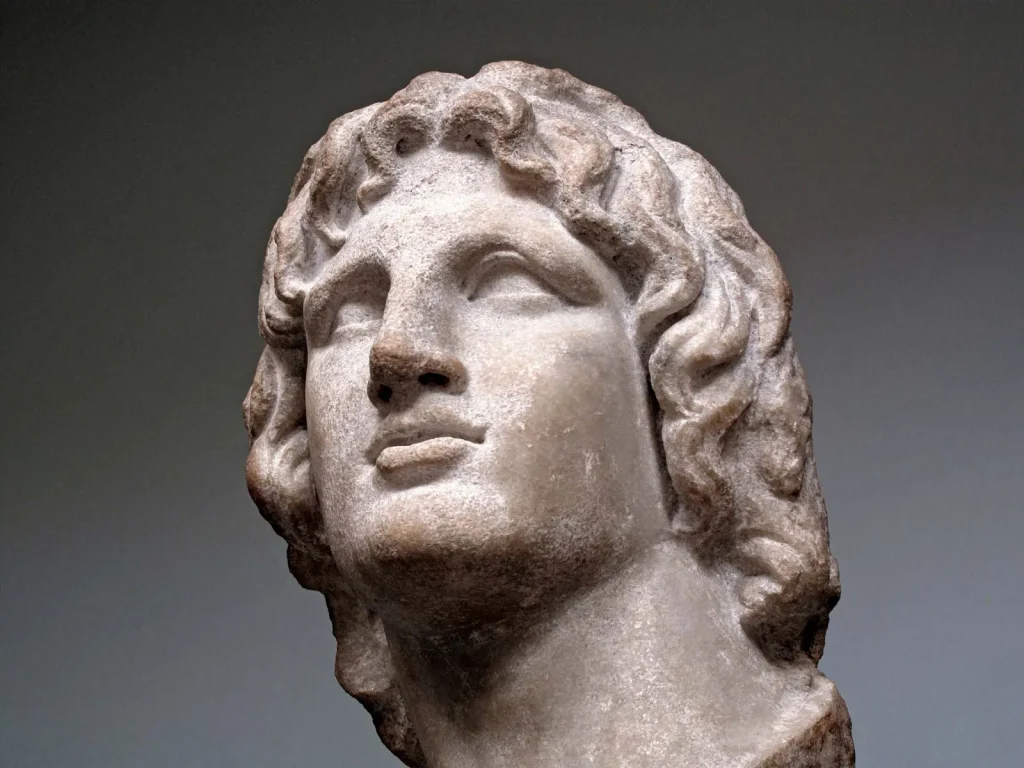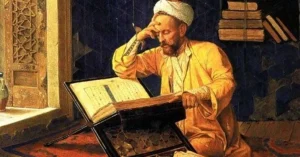
9. Cultural and Intellectual Exchange
One of the lasting effects of Alexander’s conquests was the cultural and intellectual exchange between East and West. As Greek settlers and local populations intermingled, new ideas about philosophy, science, and governance emerged. Thinkers like Aristotle, who was Alexander’s tutor, helped shape his worldview and laid the groundwork for the Hellenistic thinkers who would follow.
10. The Division of the Empire
Upon his death, Alexander’s empire was divided among his generals. While this division led to infighting and the eventual fragmentation of the empire, the political and cultural influence of Alexander’s conquests remained. The Seleucid, Ptolemaic, and Antigonid dynasties were all direct heirs of Alexander’s empire, and the legacy of his empire continued to influence the ancient world for centuries.
notable and inspiring stories of Alexander the Great’s life
Alexander the Great, one of history’s most legendary figures, had a life full of notable and inspiring stories that shaped his legacy. Here are some key moments:
1. The Conquest of the Persian Empire
Alexander’s most famous achievement was his conquest of the Persian Empire, which was the largest empire of its time. He began his campaign at the age of 20 after becoming king of Macedon following his father’s assassination. Alexander’s bold strategy, exceptional military skills, and ability to inspire his troops helped him defeat the Persians in a series of decisive battles.
The Battle of Granicus (334 BC):
This was Alexander’s first major victory against the Persians. Despite being outnumbered, he led his troops with unparalleled courage and decisiveness. His victory at Granicus marked the beginning of his quest to topple the Persian Empire.
The Battle of Issus (333 BC):
Even though Darius III, the Persian king, had a significantly larger army, Alexander’s tactical brilliance led to another remarkable victory. The battle was fought on narrow terrain, which neutralized the Persian advantage in numbers and allowed Alexander to defeat Darius’s forces decisively.
The Siege of Tyre (332 BC):
This was one of the most challenging moments in Alexander’s campaign. Tyre was a heavily fortified island city, and its inhabitants refused to surrender. Alexander demonstrated incredible military ingenuity by building a causeway to breach the city’s defenses, ultimately capturing it after a seven-month siege.
2. The Battle of Gaugamela (331 BC)
This battle is considered one of Alexander’s greatest victories. Darius III’s army was again numerically superior, but Alexander’s use of battle formations and his ability to adapt quickly on the battlefield overwhelmed the Persians. Darius fled the battlefield, and this battle led to the fall of the Persian Empire. Gaugamela solidified Alexander’s reputation as a military genius.
3. The Founding of Cities
Throughout his conquests, Alexander founded many cities, many of which were named after him, most famously Alexandria in Egypt. These cities were more than military outposts—they became centers of culture, learning, and trade. They blended Greek culture with local traditions, which helped spread Hellenistic civilization across the known world.
4. The Oracle of Delphi
When Alexander was about to set out for his campaign against Persia, he visited the Oracle of Delphi to seek guidance. The Oracle supposedly told him that he was invincible. This prophecy helped bolster his confidence and resolve, and it became a symbolic moment of his belief in his own destiny as a great leader.
5. The Crossing of the Hindu Kush and the Battle of the Hydaspes
In 326 BC, Alexander led his troops across the Hindu Kush and into India, one of the most difficult campaigns of his life. The Battle of the Hydaspes was fought against King Porus, who had a large war elephant contingent. Despite the challenges of crossing the monsoon-swollen river and facing unfamiliar terrain and foes, Alexander’s troops emerged victorious. However, after this battle, Alexander’s army, weary and longing to return home after years of campaigning, refused to march further into India, marking the furthest extent of his conquests.
6. The Death of Hephaestion
One of the most poignant moments in Alexander’s life was the death of his close friend and companion, Hephaestion, who was also his general and confidant. Alexander was devastated by his loss and mourned deeply, even ordering the construction of a grand funeral pyre and offering sacrifices to the gods in Hephaestion’s honor. His reaction shows his deep humanity and the bonds he formed with those closest to him.
7. The Vision of Divinity
Alexander was known to embrace his god-like status, especially after his visit to the Oracle of Amun in Egypt, where he was declared the son of Zeus. Many of his soldiers believed he had divine powers, and Alexander often encouraged this belief. His sense of destiny, combined with his belief in his divine heritage, fueled his relentless ambition and drive for conquest. However, his claims of divinity also led to tensions with his men and others in his court, who were skeptical of his god-like aspirations.
8. The Return to Babylon
After years of military campaigning, Alexander eventually returned to Babylon, where he intended to create a new imperial capital. He had big plans for the city, envisioning it as a grand metropolis at the center of his empire. However, before he could fully realize these plans, Alexander fell ill and died in 323 BC at the age of 32. His death marked the end of an era of military conquests and left a massive impact on history.






